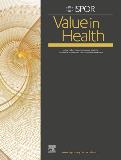
Real-world evidence on treatment outcomes can be an important aspect of the evidence basis for decision making if it is seen as credible. For real-world studies that are meant to test hypotheses about comparative-effectiveness or safety, a key aspect of credibility is that they are conducted transparently with tests that follow a prespecified analytic protocol. Preregistration of such study protocols on a public website would help build trust that their results can be used for decision-making purposes.
Establishing a Culture of Transparency for Real-World Evidence Studies...
The Real-World Evidence Transparency Initiative Partnership is a joint collaboration and ongoing effort between ISPOR, the International Society for Pharmacoepidemiology, the Duke-Margolis Center for Health Policy, and the National Pharmaceutical Council. The objective of this initiative is to establish a culture of transparency for study analysis and reporting of hypothesis evaluating real-world evidence studies on treatment effects.
Improving Transparency to Build Trust...
 The Real-World Evidence Transparency Initiative published a plan to encourage routine registration of noninterventional real-world evidence studies used to evaluate treatment effects. The report, “Improving Transparency to Build Trust in Real-World Secondary Data Studies for Hypothesis Testing—Why, What, and How: Recommendations and a Road Map from the Real-World Evidence Transparency Initiative,”
was published in the September 2020 issue of Value in Health.
The Real-World Evidence Transparency Initiative published a plan to encourage routine registration of noninterventional real-world evidence studies used to evaluate treatment effects. The report, “Improving Transparency to Build Trust in Real-World Secondary Data Studies for Hypothesis Testing—Why, What, and How: Recommendations and a Road Map from the Real-World Evidence Transparency Initiative,”
was published in the September 2020 issue of Value in Health.
More...
The report, “Improving Transparency to Build Trust in Real-World Secondary Data Studies for Hypothesis Testing—Why, What, and How: Recommendations and a Road Map from the Real-World Evidence Transparency Initiative,” was published in the September 2020 issue of Value in Health. The plan includes specifying the rationale for registering hypothesis-evaluating treatment effectiveness real-world evidence studies, the studies that should be registered, where and when these studies should be registered, how and when analytic deviations from protocols should be reported, how and when to publish results, and incentives to encourage registration.
Real-World Evidence Registry
The Real-World Evidence Registry provides researchers with a fit-for-purpose platform to register their study designs before they begin work to facilitate the transparency needed to elevate the trust in the study results.
More...
Real-world evidence studies can be used for hypothesis evaluation of treatment effects including safety (HETE studies). However these studies can also be perceived as less rigorous than clinical trials especially when not preregistered in a public setting such as ClinicalTrials.gov or the EU-PAS register.
ISPOR and its partners ISPE, NPC, and Duke Margolis have developed a simplified registration site especially for RWE HETE studies using secondary data. This searchable site provides a place for preregistration of studies that may not require registration for regulatory purposes but benefit from the rigor of transparent study methods and also provide a reference (such as a URL or doi) to share with peer reviewers, assessors, or other decision making bodies. Researchers can get started ‘here’ by creating a profile on the Open Sciences Framework and registering their study on the RWE Registry.
Shaking the Myth of Real-World Evidence
On-Demand Webinar
Learn more by watching the on-demand webinar, “Shaking the Myth of Real-World Evidence: Updates from the RWE Transparency Initiative.” This session provides updates from the initiative including a walk-through of the study registration site and updates on the special task force developing a standardized RWE protocol template.
Additional Resources
- Real-World Evidence Registry
 Good Practices Reports and Other ISPOR Reports from Value in Health
Good Practices Reports and Other ISPOR Reports from Value in Health
- HARmonized Protocol Template to Enhance Reproducibility of Hypothesis Evaluating Real-World Evidence Studies on Treatment Effects: A Good Practices Report of a Joint ISPE/ISPOR Task Force
- "Improving Transparency to Build Trust in Real-World Secondary Data Studies for Hypothesis Testing—Why, What, and How: Recommendations and a Road Map from the Real-World Evidence Transparency Initiative"
- "Good Practices for Real-World Data Studies of Treatment and/or Comparative Effectiveness"
- "Reporting to Improve Reproducibility and Facilitate Validity Assessment for Healthcare Database Studies V1.0"
- "Unlocking the Promise of Real-World Evidence" (Value & Outcomes Spotlight, Vol. 6, No. 5)
- ISPOR's Real-World Evidence Strategic Initiatives
Conferences & Summits

April 19, 2023
<p><a href="/education-training/webinars">Back to all webinars</a></p><h4>Open to all ISPOR Members and Non-members</h4><p><em><strong><br /></strong></em><strong>Title: </strong>Introduction to Open-Source Modeling: R We There Yet?</p><p><strong>Wednesday, April 19, 2023<br /></strong>12:00PM EDT | 4:00PM UTC | 6:00PM CEST </p><p> <a href="https://www.timeanddate.com/worldclock/fixedtime.html?msg=ISPOR+Educational+Webinar%3A+Distributional+Cost-Effectiveness+Analysis+to+Inform+Healthcare+Decisions&iso=20220623T11&p1=12&ah=1"><br data-sf-ec-immutable="" /></a> <a href="https://www.timeanddate.com/worldclock/fixedtime.html?msg=Introduction+to+Open-Source+Modeling%3A+R+We+There+Yet%3F&iso=20230419T12&p1=179&ah=1" data-sf-ec-immutable="" data-sf-marked="">Click here for time zone conversion</a><br <="" p="" /><br /><a href="https://portal.ispor.org/eweb/DynamicPage.aspx?webcode=EventInfo&Reg_evt_key=aab1ba50-0b48-476c-96e0-ac1184362541&RegPath=EventRegNoFees&FreeEvent=1&Event=ISPOR%20Webinar:%20Introduction%20to%20Open-Source%20Modeling:%20R%20We%20There%20Yet?&FundraisingEvent=0&evt_guest_limit=0" class="button primary" data-sf-ec-immutable="" target="_blank">Register Now</a><br /></p><p><strong>Description</strong></p><p>Health economic evaluation (HEE) models support resource allocation decisions and can help in the achievement of health goals and direct health policy. HEE models are often complex and opaque, which may lead to inaccuracies and bias. Greater reuse, transparency, and credibility of HEE models may be achieved by wider adoption of open-source models (OSMs). Currently, there is already a diverse range of approaches available for OSMs. In this forum, the OSM Special Interest Group has selected leaders in the field of health economics to describe their approach to OSMs. Mohsen Sadatsafavi will introduce the Peer Models Network and PRISM service as part of "Open-access modelling as a companion to open-source modelling” illustrated with an example implemented for Chronic Obstructive Pulmonary Disease (the Evaluation Platform in COPD (EPIC) model.) </p><p><br /><strong>Learning Objectives<br /></strong><br />• Understand key advantages of programming a decision analytic model in R.<br />• Learn the core features of the EPIC model, the first multipurpose, open-source, outcome- and policy-focused model of COPD for Canada. <br />• Understand the difference between “open source” and “open access” models and become familiar with PRISM, a novel cloud-based model access platform.<strong></strong></p><p> </p><p><strong>Moderator:</strong></p><p><strong>Stephanie Harvard, PhD</strong>, Michael Smith Health Research Post-Doctoral Fellow, Michael Smith Health Research Post-Doctoral Fellow, University of British Columbia, Vancouver, BC, Canada </p><p><strong>Speaker: </strong></p><div><p paraid="1637177451" paraeid="{565aa113-7a91-42d6-9932-2ab675f77562}{6}"><strong>Mohsen Sadatsafavi, MD, PhD</strong>,<strong> </strong>Associate Professor and Associate Director – Research, Collaboration for Outcomes Research and Evaluation, University of British Columbia, Vancouver, BC, Canada </p></div><p> </p><p><strong>Brought to you by: </strong><a href="/member-groups/special-interest-groups/open-source-models">ISPOR Open Source Models Special Interest Group</a><strong><br /></strong><br /></p><p paraid="271259179" paraeid="{8d771561-2af9-432a-af6d-681df4398e6a}{103}" style="text-align:left;"><strong style="background-color:initial;font-size:inherit;text-align:inherit;text-transform:inherit;white-space:inherit;word-spacing:normal;caret-color:auto;"><br />Please note:</strong><span style="background-color:initial;font-size:inherit;text-align:inherit;text-transform:inherit;white-space:inherit;word-spacing:normal;caret-color:auto;font-family:inherit;"> On the day of the scheduled webinar, the </span> <strong style="background-color:initial;font-size:inherit;text-align:inherit;text-transform:inherit;white-space:inherit;word-spacing:normal;caret-color:auto;">first 1000 registered participants</strong><span style="background-color:initial;font-size:inherit;text-align:inherit;text-transform:inherit;white-space:inherit;word-spacing:normal;caret-color:auto;font-family:inherit;"> will be accepted into the webinar. For those who are unable to attend, or would like to review the webinar at a later date, the full-length webinar recording will be made available at the </span><a href="/education-training/webinars" style="font-family:inherit;font-size:inherit;text-align:inherit;text-transform:inherit;white-space:inherit;word-spacing:normal;" rel="noopener noreferrer" target="_blank">ISPOR Educational Webinar Series webpage</a><span style="background-color:initial;font-size:inherit;text-align:inherit;text-transform:inherit;white-space:inherit;word-spacing:normal;caret-color:auto;font-family:inherit;"> approximately 2 days after the scheduled Webinar.</span></p><div>Reservations are on a first-come, first-served basis.</div>)
Short Courses & Webinars

April 19, 2023
<p><a href="/education-training/webinars">Back to all webinars</a></p><h4>Open to all ISPOR Members and Non-members</h4><p><em><strong><br /></strong></em><strong>Title: </strong>Introduction to Open-Source Modeling: R We There Yet?</p><p><strong>Wednesday, April 19, 2023<br /></strong>12:00PM EDT | 4:00PM UTC | 6:00PM CEST </p><p> <a href="https://www.timeanddate.com/worldclock/fixedtime.html?msg=ISPOR+Educational+Webinar%3A+Distributional+Cost-Effectiveness+Analysis+to+Inform+Healthcare+Decisions&iso=20220623T11&p1=12&ah=1"><br data-sf-ec-immutable="" /></a> <a href="https://www.timeanddate.com/worldclock/fixedtime.html?msg=Introduction+to+Open-Source+Modeling%3A+R+We+There+Yet%3F&iso=20230419T12&p1=179&ah=1" data-sf-ec-immutable="" data-sf-marked="">Click here for time zone conversion</a><br <="" p="" /><br /><a href="https://portal.ispor.org/eweb/DynamicPage.aspx?webcode=EventInfo&Reg_evt_key=aab1ba50-0b48-476c-96e0-ac1184362541&RegPath=EventRegNoFees&FreeEvent=1&Event=ISPOR%20Webinar:%20Introduction%20to%20Open-Source%20Modeling:%20R%20We%20There%20Yet?&FundraisingEvent=0&evt_guest_limit=0" class="button primary" data-sf-ec-immutable="" target="_blank">Register Now</a><br /></p><p><strong>Description</strong></p><p>Health economic evaluation (HEE) models support resource allocation decisions and can help in the achievement of health goals and direct health policy. HEE models are often complex and opaque, which may lead to inaccuracies and bias. Greater reuse, transparency, and credibility of HEE models may be achieved by wider adoption of open-source models (OSMs). Currently, there is already a diverse range of approaches available for OSMs. In this forum, the OSM Special Interest Group has selected leaders in the field of health economics to describe their approach to OSMs. Mohsen Sadatsafavi will introduce the Peer Models Network and PRISM service as part of "Open-access modelling as a companion to open-source modelling” illustrated with an example implemented for Chronic Obstructive Pulmonary Disease (the Evaluation Platform in COPD (EPIC) model.) </p><p><br /><strong>Learning Objectives<br /></strong><br />• Understand key advantages of programming a decision analytic model in R.<br />• Learn the core features of the EPIC model, the first multipurpose, open-source, outcome- and policy-focused model of COPD for Canada. <br />• Understand the difference between “open source” and “open access” models and become familiar with PRISM, a novel cloud-based model access platform.<strong></strong></p><p> </p><p><strong>Moderator:</strong></p><p><strong>Stephanie Harvard, PhD</strong>, Michael Smith Health Research Post-Doctoral Fellow, Michael Smith Health Research Post-Doctoral Fellow, University of British Columbia, Vancouver, BC, Canada </p><p><strong>Speaker: </strong></p><div><p paraid="1637177451" paraeid="{565aa113-7a91-42d6-9932-2ab675f77562}{6}"><strong>Mohsen Sadatsafavi, MD, PhD</strong>,<strong> </strong>Associate Professor and Associate Director – Research, Collaboration for Outcomes Research and Evaluation, University of British Columbia, Vancouver, BC, Canada </p></div><p> </p><p><strong>Brought to you by: </strong><a href="/member-groups/special-interest-groups/open-source-models">ISPOR Open Source Models Special Interest Group</a><strong><br /></strong><br /></p><p paraid="271259179" paraeid="{8d771561-2af9-432a-af6d-681df4398e6a}{103}" style="text-align:left;"><strong style="background-color:initial;font-size:inherit;text-align:inherit;text-transform:inherit;white-space:inherit;word-spacing:normal;caret-color:auto;"><br />Please note:</strong><span style="background-color:initial;font-size:inherit;text-align:inherit;text-transform:inherit;white-space:inherit;word-spacing:normal;caret-color:auto;font-family:inherit;"> On the day of the scheduled webinar, the </span> <strong style="background-color:initial;font-size:inherit;text-align:inherit;text-transform:inherit;white-space:inherit;word-spacing:normal;caret-color:auto;">first 1000 registered participants</strong><span style="background-color:initial;font-size:inherit;text-align:inherit;text-transform:inherit;white-space:inherit;word-spacing:normal;caret-color:auto;font-family:inherit;"> will be accepted into the webinar. For those who are unable to attend, or would like to review the webinar at a later date, the full-length webinar recording will be made available at the </span><a href="/education-training/webinars" style="font-family:inherit;font-size:inherit;text-align:inherit;text-transform:inherit;white-space:inherit;word-spacing:normal;" rel="noopener noreferrer" target="_blank">ISPOR Educational Webinar Series webpage</a><span style="background-color:initial;font-size:inherit;text-align:inherit;text-transform:inherit;white-space:inherit;word-spacing:normal;caret-color:auto;font-family:inherit;"> approximately 2 days after the scheduled Webinar.</span></p><div>Reservations are on a first-come, first-served basis.</div>)



